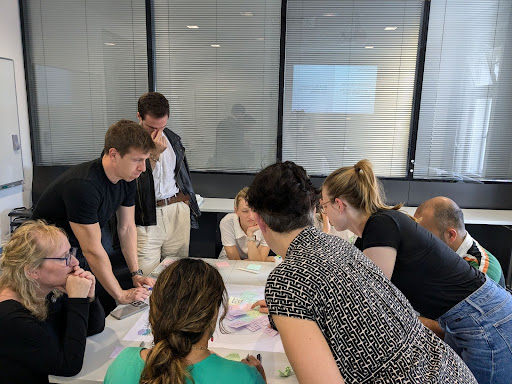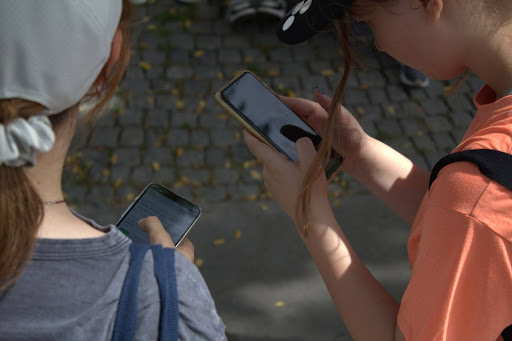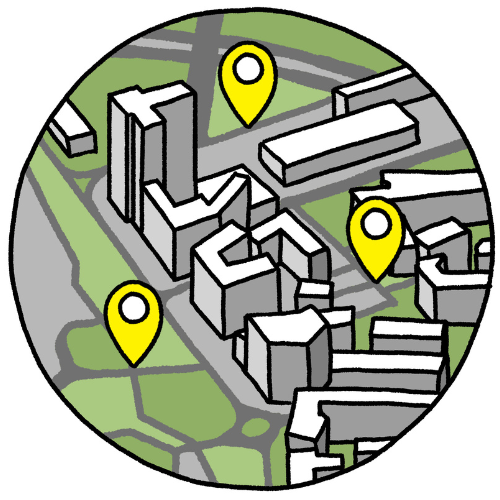Project Description:
We are building a socially conscious framework that integrates subjective community knowledge and existing urban data to reveal, inform and overcome the contemporary challenges of urban mobility. The aim is to reorganise individual observations of citizens into collective knowledge, providing real-time mobility insights and actionable results.
Navigating urban places often poses challenges related to movement, traffic protection, climate comfort, night lighting, noise levels, greenery and more. Based on a scientific approach, our groundbreaking mobility dashboard translates these challenges into concrete, site-sensitive indicators or “layers” of urban mobility that the citizens can identify, map, and visualize. Our innovative mobility dashboard goes beyond traditional data-driven approaches, merging the emotional and experiential knowledge generated by citizens with open data to produce meaningful simulations of key mobility phenomena.
These interactive simulations, visualized as heatmaps, measure the (un)favorability of movement in various urban areas, providing a context-specific roadmap for improvement based on collective intelligence. By engaging with citizens, especially those with functional diversity, the elderly and minors, we aim to bridge knowledge gaps and foster a more inclusive, citizen-centred approach to urban mobility.
Project Type: Kickstarting Grant
Theme: Sustainable Lifestyles, Mobility
Mentor:Patrícia Tiago
Layered City: Inclusive Urban Mobility
Our project, Layered City: Inclusive Urban Mobility, unites researchers, mobility experts, and community members to collaboratively develop an inclusive urban mobility framework. By combining expert workshops with participatory mapping supported by a digital platform, the project transforms citizen observations into real-time insights. These insights are visualised as interactive heatmaps, highlighting key mobility factors and fostering a citizen-centred approach to improving urban mobility.
The project team includes Lovro Koncar-Gamulin (Project Lead), Angelos Chronis (Tech Project Manager), Androniki Pappa (Researcher), Domagoj Krhen (Researcher), Stasja Fedorov (Technical Implementation), and Eveline Wandl-Vogt (Research Advisor). Together, we share a common goal: to promote equitable access to mobility for everyone.

[fig.1 Layered City, 2nd Experts’ Workshop on Inclusive Urban Mobility, 10/09/2024, Vienna]
What We Did
Using a participatory methodology, we engaged mobility experts from the public, private, civic, educational, and social sectors in co-creation workshops. Together, we defined an inclusive urban mobility framework built around five key parameters: Safety, Accessibility, Inclusivity, Experience and Comfort, and Connectivity [Fig. 1].

[fig.2 Layered City, Participatory Mapping with children, 21/06/2024, Vienna]
This framework informed a participatory mapping process where citizens from various social groups – including minors, the elderly, visually impaired individuals, and people with mobility difficulties – joined organised mapping walks. These participants assessed urban mobility from their own perspectives [Fig. 2].
Using our mobile app, citizens rated nearby spaces and provided location-specific feedback through tags such as “lighting quality” or “ease of navigation.” By engaging individuals with diverse mobility needs, the project bridges knowledge gaps and promotes a more inclusive, citizen-driven approach to urban mobility.
Why It Matters
Inclusive urban mobility is essential for creating cities that work for everyone, regardless of age, ability, or socioeconomic background. Our project addresses barriers to mobility, such as inaccessible public spaces, poor connectivity, and safety concerns, which can limit people’s ability to fully participate in city life. By involving citizens directly, we amplify diverse voices and ensure city planning reflects the lived experiences of its users.
How IMPETUS Helped
The IMPETUS Accelerator provided vital resources that elevated our project:
- Funding: Supported app development and outreach activities.
- Mentorship: Tailored guidance refined our approach and enhanced community engagement.
- Networking: Opportunities to connect with other projects addressing urban challenges.
The Road Ahead
Building on the data from our pilot phase, our next step is to analyse the results and share the findings through academic publications and policy recommendations. We aim to present these insights to city governments, advocating for inclusive urban planning rooted in the voices of citizens. Our ultimate goal is to ensure that every street, park, and pathway is accessible, safe, and welcoming to all, creating cities that truly belong to everyone.
Looking forward, we plan to further enhance our Layered City methodology and platform. This includes integrating new features and applying the mapping process to additional urban phenomena and geographical contexts.



